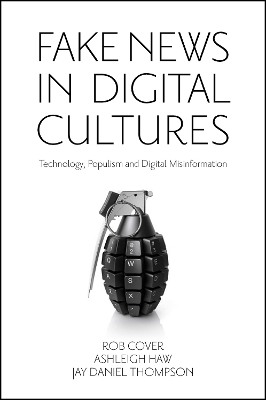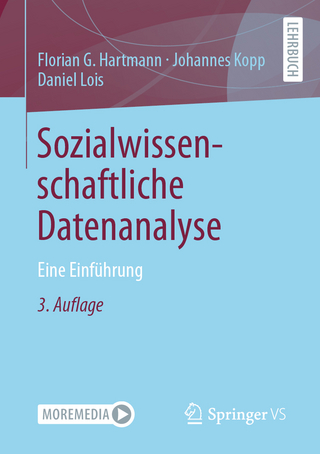
Fake News in Digital Cultures
Emerald Publishing Limited (Verlag)
978-1-80117-879-2 (ISBN)
- Noch nicht erschienen (ca. März 2025)
- Versandkostenfrei innerhalb Deutschlands
- Auch auf Rechnung
- Verfügbarkeit in der Filiale vor Ort prüfen
- Artikel merken
Fake News in Digital Cultures presents a new approach to understanding disinformation and misinformation in contemporary digital communication, arguing that fake news is not an alien phenomenon undertaken by bad actors, but a logical outcome of contemporary digital and popular culture, conceptual changes meaning and truth, and shifts in the social practice of trust, attitude and creativity.
Looking not to the problems of the present era but towards the continuing development of a future digital media ecology, the authors explore the emergence of practices of deliberate disinformation. This includes the circulation of misleading content or misinformation, the development of new technological applications such as the deepfake, and how they intersect with conspiracy theories, populism, global crises, popular disenfranchisement, and new practices of regulating misleading content and promoting new media and digital literacies.
Rob Cover is Professor of Digital Communication at RMIT University, Melbourne, Australia. He is a media and cultural studies scholar of digital identity, health and inclusion, and has led several Australian and international projects investigating minority representation and media participation. He has published widely on topics related to digital cultures in the context of social identities, youth, health, wellbeing and resilience. Ashleigh Haw is a Research Fellow in Sociology at the University of Melbourne’s School of Social and Political Sciences and an Honorary Fellow at the Melbourne Social Equity Institute. She is editor of the blog Refugee Research Online. Ashleigh’s research examines public, media and political constructions of people from marginalised backgrounds, how media and linguistic practices reinforce vulnerability, and the impact of news and social media on health and social cohesion. Jay Daniel Thompson is Lecturer in Professional Communication in the School of Media and Communication at RMIT University. He is currently researching digital communication in the context of ethical discourse, misinformation, extremist speech, conspiracy theories, and online hostility. Jay has a background in researching digital media writing, media ethics, and online controversy.
Chapter 1. Introduction: Digital Cultures and Fake News;
Chapter 2. What is Fake News? Defining Truth;
Chapter 3. The Cultural Emergence of Fake News I: Digital Cultures, Interactive Practices and Artificial Feeds;
Chapter 4. The Cultural Emergence of Fake News II: Postmodernism, Sensationalism and the Hyperreal;
Chapter 5. The Visual in an Era of Hyperreality and Disinformation: The Deepfake Video;
Chapter 6. Fake News and Conspiracy Theories;
Chapter 7. Marginalising the Marginalised: Fake News as a Tool of Populist Power;
Chapter 8. Audiences, Trust and Polarisation in a Post-Truth Media Ecology;
Chapter 9. Remedying Disinformation: Communication Practice in a World of Fake News;
Chapter 10. Ethical Practices, Digital Citizenship and Communication Futures
| Erscheint lt. Verlag | 14.3.2025 |
|---|---|
| Verlagsort | Bingley |
| Sprache | englisch |
| Maße | 152 x 229 mm |
| Themenwelt | Sozialwissenschaften ► Kommunikation / Medien ► Medienwissenschaft |
| Sozialwissenschaften ► Soziologie | |
| ISBN-10 | 1-80117-879-8 / 1801178798 |
| ISBN-13 | 978-1-80117-879-2 / 9781801178792 |
| Zustand | Neuware |
| Informationen gemäß Produktsicherheitsverordnung (GPSR) | |
| Haben Sie eine Frage zum Produkt? |
aus dem Bereich


